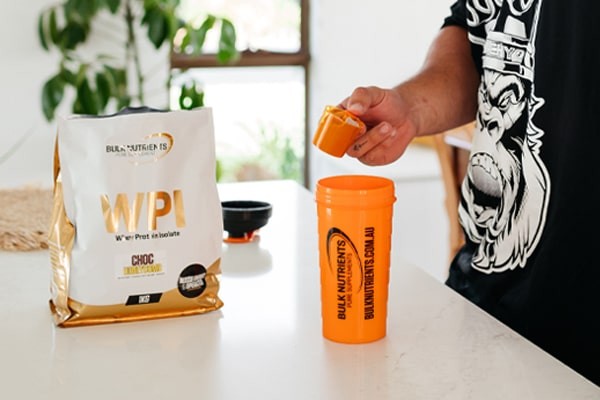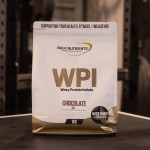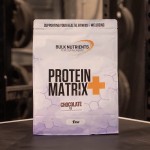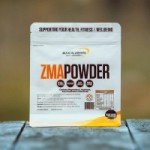Optimise Sleep, Reduce Stress, and Rest to Build More Muscle

How does sleep affect muscle building?
When we sleep, we recover and grow. This is also when our muscle-building hormones are produced. Without adequate sleep, you’re risking having lower amounts of muscle-building hormones.
Our muscles also relax during sleep, so you may feel more soreness or tension after not sleeping an adequate amount. Research shows lack of sleep is detrimental to the body and can increase the likelihood of chronic pain, as well as conditions such as high blood pressure, obesity, and heart disease.

How to optimise sleep?
According to the Sleep Health Foundation, adults should aim for 7 to 9 hours of sleep each night, but anywhere from 6 to 10 hours may be appropriate. The key to optimising sleep is to stick to the same waking and sleeping time each night and ensure these times allow you to get your required amount of sleep.
If you’re sticking to your schedule, but still feel you can’t fall asleep fast enough, you may want to try an Ashwagandha or Valerian supplement. Ashwagandha and Valerian have been used for thousands of years in traditional Indian home medicine called Ayurveda.
Recently, studies such as this one and this one have identified that key extract of the ashwagandha plant and shown that it reduces the incidence of non-restorative sleep, thereby improving overall sleep quality.
How does stress affect muscle building?
The stress response and the increase in the cortisol which accompanies this can also affect muscle-building negatively. To clarify, the stress response is made for acute or short bouts of stress and is very helpful in readying our body for ‘fight’ or ‘fight’; problems occur when the stress response becomes chronic, meaning it lasts over days, week, or months. When stress is chronic, the body feels like it is in survival mode and therefore less focus can be given to things like recovery and building muscle.
The higher levels of cortisol that result from chronic stress can wreak havoc on your body. Cortisol is catabolic, and in cases of chronic stress, it will break down molecules and inhibit protein muscle synthesis. Other key things cortisol can cause include:
- Increasing your blood glucose levels, leads to an increase in insulin in the body’s attempt to level things out, causing an increase in visceral fat.
- Stimulating your appetite and potentially pushing you towards poor food choices.
- Reducing your ability to recover from exercise due to increased muscle tension, reduced blood flow, and higher levels of lactic acid.

How to manage stress?
You’re likely wanting to avoid cortisol build up based on this. Stress management looks different for everyone. The key is to be aware of when stress is taking over and be able to recognise that it is time to pull back and recover.
Stress management strategies may include balancing work with time off, eating a healthy diet, and ensuring you have enough time to wind down in the evenings.
Additional opportunities for managing stress include:
- Switching off social media.
- Going for a walk.
- Relaxing.

How does your protein intake affect muscle building?
Protein is the most important macronutrient for muscle building. The distribution of protein throughout the day can be manipulated to increase protein synthesis, which is the process in which cells produce protein to repair muscle damage.
Multiple studies such as this one and this one have identified that smaller amounts of protein eaten more frequently throughout the day provide increased protein synthesis when compared to larger amounts of protein eaten less frequently. Based on this, it is recommended to distribute protein evenly across the day and include it in each meal.
In addition to distributing protein throughout the day, a pre-sleep protein meal has also been shown in a recent study to improve overall muscle protein synthesis rates which leads to an increase in muscle hypertrophy. That study was unable to determine whether this was due to the ingestion of protein pre-sleep or due to the increase in overall protein intake.
Another study showed that pre-sleep protein ingestion resulted in rates of muscle protein synthesis being approximately 22% higher.
Bonus: ZMA Supplementation
ZMA is a popular supplement made up of magnesium, zinc, and vitamin B6. The use of ZMA has been widely studied, particularly in night-time supplementation to improve strength gains.
Try Bulk Nutrients ZMA powder with your night time protein to improve muscle building!
If you want to read more about ZMA, check out this blog and if you want to read more about supplementation for health and recovery, check out this blog.
Looking for a good night's sleep for recovery keep in mind the 90-minute sleep cycle method.
How to optimise diet?
In line with research, you should aim to spread your protein intake evenly throughout the day and ensure you have a pre-sleep intake of protein. A great way to increase your protein intake is Bulk Nutrients Protein Matrix+!
Does exercise timing affect muscle building?
When is the best time of day to exercise for building muscle? It depends! Research suggests that afternoon training may be more effective in producing muscle hypertrophy.
Further research suggests the best time of day for exercise and muscle building may be dependent on the individual and can vary from person to person, noting high person to person variability in response to early morning training.
How to optimise exercise timing?
The jury is still out on this one research-wise. My advice is to look at your chronotype and find what works for you. A chronotype is a classification system that is used to aid in our understanding of sleep and productivity schedules. Rather than being set, the chronotypes fall on a spectrum from morning larks, those who prefer mornings, to night owls, or those who prefer evenings.
To determine your chronotype, think about when you would like to wake up on a day that you have nothing planned. Would you prefer to be awake in the morning or do you often wait until the evening to really feel awake? Alternatively, take a quick quiz such as this one.
A 2020 study showed late chronotypes may benefit from exercising in the morning to evening, however, early chronotypes should exercise earlier in the day to avoid disrupting their circadian rhythm.

Stress plus rest equals growth
The most important thing to take from this blog is that stress plus rest equals growth. You can’t build muscle without stressing the body, but you also can’t build muscle without resting the body!
Next time you’re planning your training program, remember the growth equation and ensure you can be rested enough to put your best into training.
References:
- Areta, J., Burke, L., Ross, M., Camera, D., West, D., Broad, E., Jeacocke, N., Moore, D., Stellingwerff, T., Phillips, S., Hawley, J. and Coffey, V., 2013. Timing and distribution of protein ingestion during prolonged recovery from resistance exercise alters myofibrillar protein synthesis. The Journal of Physiology, 591(9), pp.2319-2331.
- Brilla, L & Conte, V, Effects of a novel zinc-magnesium formulation on hormones and strength, Journal of Exercise Physiology Online 3(4):26-36 · October 2000
- Brilla, L & Conte, V, Effects of Zinc-Magnesium (Zma) Supplementation on Muscle Attributes of Football Players, Medicine & Science in Sports & Exercise 31(5):S123 · May 1999
- Deshpande, A., Irani, N., Balkrishnan, R. and Benny, I., 2020. A randomized, double blind, placebo controlled study to evaluate the effects of ashwagandha (Withania somnifera) extract on sleep quality in healthy adults. Sleep Medicine, 72, pp.28-36.
- Finan, P., Goodin, B. and Smith, M., 2013. The Association of Sleep and Pain: An Update and a Path Forward. The Journal of Pain, 14(12), pp.1539-1552.
- Kaushik, M., Kaul, S., Wadhwa, R., Yanagisawa, M. and Urade, Y., 2017. Triethylene glycol, an active component of Ashwagandha (Withania somnifera) leaves, is responsible for sleep induction. PLOS ONE, 12(2), p.e0172508.
- Konopka, A. and Harber, M., 2014. Skeletal Muscle Hypertrophy After Aerobic Exercise Training. Exercise and Sport Sciences Reviews, 42(2), pp.53-61.
- Küüsmaa, M., Schumann, M., Sedliak, M., Kraemer, W., Newton, R., Malinen, J., Nyman, K., Häkkinen, A. and Häkkinen, K., 2016. Effects of morning versus evening combined strength and endurance training on physical performance, muscle hypertrophy, and serum hormone concentrations. Applied Physiology, Nutrition, and Metabolism, 41(12), pp.1285-1294.
- Mamerow, M., Mettler, J., English, K., Casperson, S., Arentson-Lantz, E., Sheffield-Moore, M., Layman, D. and Paddon-Jones, D., 2014. Dietary Protein Distribution Positively Influences 24-h Muscle Protein Synthesis in Healthy Adults. The Journal of Nutrition, 144(6), pp.876-880.
- Res, P., Groen, B., Pennings, B., Beelen, M., Wallis, G., Gijsen, A., Senden, J. and Van Loon, L., 2012. Protein Ingestion before Sleep Improves Postexercise Overnight Recovery. Medicine & Science in Sports & Exercise, 44(8), pp.1560-1569.
- Schoenfeld, B., 2012. Does Exercise-Induced Muscle Damage Play a Role in Skeletal Muscle Hypertrophy?. Journal of Strength and Conditioning Research, 26(5), pp.1441-1453.
- Sedliak, M., Finni, T., Cheng, S., Lind, M. and Häkkinen, K., 2009. Effect of Time-of-Day-Specific Strength Training on Muscular Hypertrophy in Men. Journal of Strength and Conditioning Research, 23(9), pp.2451-2457.
- Sleephealthfoundation.org.au. 2021. [online] Available at: <https://www.sleephealthfoundation.org.au/sleep-topics/how-much-sleep-do-you-really-need> [Accessed 10 July 2021].
- Snijders, T., Res, P., Smeets, J., van Vliet, S., van Kranenburg, J., Maase, K., Kies, A., Verdijk, L. and van Loon, L., 2015. Protein Ingestion before Sleep Increases Muscle Mass and Strength Gains during Prolonged Resistance-Type Exercise Training in Healthy Young Men. The Journal of Nutrition, 145(6), pp.1178-1184.
- Thomas, J., Kern, P., Bush, H., McQuerry, K., Black, W., Clasey, J. and Pendergast, J., 2020. Circadian rhythm phase shifts caused by timed exercise vary with chronotype. JCI Insight, 5(3).
- Van Cauter, E. and Plat, L., 1996. Physiology of growth hormone secretion during sleep. The Journal of Pediatrics, 128(5), pp.S32-S37.
Related Blogs

How Important is Sleep for Muscle Building/Retention?
Posted by Jackson Peos
Estimated reading time: 6 minutes

Sleep - Are You Getting Enough?
Posted by Bridget Freeman
Estimated reading time: 5 minutes

The Secret to Building Serious Muscle Mass
Posted by Bulk Nutrients
Estimated reading time: 6 minutes































